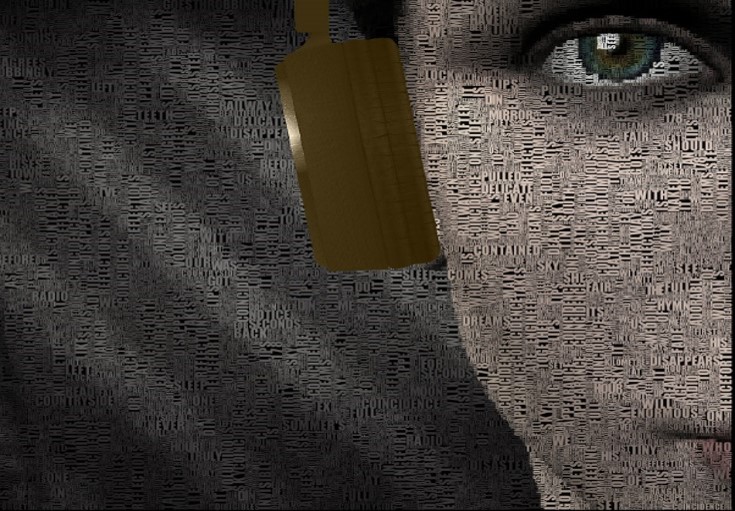
I was fascinated by Paul Heine’s story yesterday in Inside Radio – “Radio Companies Have Become Digital Over-Achievers.” It was a guided tour from a visionary guy who’s been there and done that – Gordon Borrell. If you’ve met or worked with Gordon or seen him speak, you know he’s a serious purveyor of the “climate change” that has come to traditional media in the form of digital disruption. The Borrell folks work with broadcast TV and radio companies, as well as many newspaper publishers, helping them achieve a “digital makeover.”
The story highlights several radio companies – as we used to call them – that are now aggressively pursuing digital transition. Execs from Townsquare, Hubbard, and Beasley were all highlighted – and deservedly so. But Gordon could have mentioned another dozen companies, especially iHeartMedia, that have been consistently investing in digital, streaming, and connected cars long before it was fashionable. But it’s not just the big boys like Pittman and Field who are investing in their corporations’ digital futures. Smaller companies like Federated Media, Mid-West Family, Zimmer, Guaranty Media, and many others are shifting their priorities, and are now knee deep in the digital transformation.
They’re all placing their bets, building divisions, buying companies, and as importantly, hiring qualified people who can help them make these challenging transitions. As we have analogized in this blog in the past, this is much like fixing the airplane while its flying at 35,000 feet.
And for the thousands of people in radio who have held traditional jobs – DJ, traffic manager, sales rep – the last decade has been skittish. Sadly, layoffs and cutbacks have become commonplace in the radio broadcasting industry.
And while it’s understandable when people are focused on their personal fortunes, pulling back and looking at the bigger picture in radio is precisely what Heine did in yesterday’s story. Yes, just about every radio company – I can’t think of an exception – has slashed its traditional workforce. That’s painful, sad, and often interpreted by outsiders as the radio industry giving up on itself.
But the fact is, just about every company has also reinvested its resources in new expertise and human capital. They’re hiring digital pros, videographers, social media specialists, and digital sales experts – in short, people for positions that didn’t exist 5 or 10 years ago.

It’s a familiar message to those of us in and around the radio business that priorities are indeed changing. Yes, content matters. Revenue is critical. Community service is paramount. But the face of change is unmistakable, and the captains of the industry are in the middle of a marathon of digital change.
Consider some of the quotes that appeared in the Inside Radio story, all said very concisely by executives who are wisely positioning their companies as forward-thinking. Each speaks volumes about the changing state of the industry.
So, first their quote. And then my interpretation of what it means, not just to their companies but to the radio industry.
Hubbard’s Senior Director, Digital Sales Strategy Steve Goldstein:
“Digital has opened up a whole new world of possibilities, quite literally.”
Translation: The radio business has been great, but it no longer allows growth outside of the normal sales parameters. That’s why we launched our agency (2060) and invested in Podcast One.
Tonwsquare’s CEO Bill Wilson:
“Digital is the door opener…This has been a game changer for us over the past 24 months where, rather than leading with broadcast and asking if they also want to include our digital products, instead we start with a valid business reason rooted in digital to call on a new client and then do a very thorough client needs assessment with the client.”
Translation: Digital is the lightning rod that allows us to make bigger sales, while better meeting our clients’ needs. To now be in the game, we have to lead with digital.
Beasley Media’s CEO Caroline Beasley:
“We need a cultural shift to make sure everyone’s on the same page…We’re all optimistic about where we’re going. It’s a really exciting time.”
Translation: We’re changing, and it’s important our legacy staffers understand our direction and what will be expected of them moving forward.
And last but not least, iHeartMedia CEO Bob Pittman in an interview with NBC News last month:
“(Technology’s) added more and more ways to listen to the radio on hundreds of new platforms and thousands of new devices, from smart speakers to smart TVs and game players. iHeart is leading the radio side of things.”
Translation: Radio won’t ever be the same. We need to change, adapt, and adjust, and you can damn well bet iHeart will be in the forefront.
And if you believe my interpretive abilities, take stock of the fact that while radio has made painful reductions in some areas, the spending has increased considerably in others. For people employed in radio at the station or corporate levels, these are messages that strongly suggest their companies are on the move.
To keep pace, it would be smart to learn new skills – whether on the content creation or monetization side – not just to retain your employment, but to make an active contribution to the company that’s employed you. Because virtually anyone can now own the next big idea.
I would bet that a great new initiative or concept on the digital front would get the attention of your company’s COO or CEO, far more than the next big radio format or cool contest. Radio’s leadership knows what they don’t know about the future of media. And they’re looking for answers from wherever they come from.
Make no mistake about it. Radio’s not fading out into the sunset anytime soon. All those radio execs I quoted earlier will tell you how important broadcast is to their companies and their shareholders. While the going’s gotten tougher, radio is still an incredibly viable business, a proven marketing tool, and a reliably source of information and entertainment for millions and millions of Americans everyday.
But these messages from the aforementioned industry leaders aren’t just Wall Street speak. They’re real. The world has changed, and radio is no different than any other industry – automotive, retail,  medical, insurance, razor blades. They’re all being disrupted by the inevitable onrush of technology and the changing times in which we live.
medical, insurance, razor blades. They’re all being disrupted by the inevitable onrush of technology and the changing times in which we live.
The famous philosopher, Bob Dylan, once said,
“You don’t need a weatherman to know which way the wind blows.”
Translation: If you work in radio, just open the window and see for yourself. You know all you need to know.
- Can Radio Afford To Miss The Short Videos Boat? - April 22, 2025
- Media And Technology In 2025: Believe It Or Not! - April 18, 2025
- In Radio, You Just Never Know - April 17, 2025




Outstanding insights with simultaneous opportunity to refresh on-air.
Appreciate it, Clark.
Fred: You know I don’t comment often. Today makes two in a row. “Well done”. Thanks
Much appreciated, Jay. Now the pressure’s on for tomorrow! 🙂
Fred, outstanding….again. You have nailed it and I loved the weatherman quote at the end……laughed out loud.
The winds of change are indeed blowing and the digital change is in full force. The number of calls and inquiries I receive each week regarding the Twitch platform are growing and stations/personalities are eye opening. It’s a very exciting time.
Don, it IS exciting – challenging, to be sure, but so many opportunities for a talented, creative people. Appreciate the kind words.
Well said, Fred. Great read.
Appreciate that, Joel.
On point!
You either adapt and grow with the changes, or you will be left behind… wondering WTH just happened…
Bev, I’m thinking you said in 20 words what it took me 1,000 to say. 🙂 Thanks for the comment.